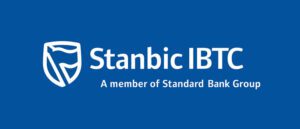


Nigeria’s MPR projected to drop to 12.5% by 2026 amid inflation challenges
By Sodiq Adelakun
In a forward-looking assessment of Nigeria’s economic policy, The Economist Intelligence Unit (EIU) has forecasted a potential easing of the country’s Monetary Policy Rate (MPR) to 12.5 percent by the year 2026, provided that inflation rates decline.
This adjustment is anticipated to hold steady for the remainder of the forecast period.
According to the EIU’s latest report, the Central Bank of Nigeria (CBN) is expected to gradually relax its stringent monetary policy, initiating rate cuts at the outset of 2026.
This shift is projected despite persistent inflation rates that hover above the CBN’s target range of 6-9 percent. The report elaborates on the conditions leading to this policy shift: “Assuming a reduction in inflation from 2025, we foresee the CBN easing its tight monetary stance.
“Early rate cuts in 2026 are anticipated, even as inflation continues to exceed the CBN’s preferred target band. The policy rate is projected to decrease to 12.5 percent in 2026 and is expected to maintain that level for the rest of the period under review.”
A reduction in the MPR typically results in decreased interest payments on various forms of loans, including those for housing, vehicles, and personal use.
This easing of the financial burden could make it more affordable for Nigerian households to secure funds for significant purchases, potentially boosting consumer expenditure across the nation.
However, as borrowing costs diminish, the yields on savings and other interest-earning investments are also likely to fall.
This scenario may lead to a reduced inclination towards saving in conventional bank accounts, while simultaneously prompting investors to seek higher returns through more speculative asset classes.
For the business sector, lower interest rates could translate into reduced borrowing costs for expansion, equipment upgrades, or other capital investments.
The Monetary Policy Committee (MPC) meeting, which held on February 26 and 27, 2024, raised the MPR by 400 basis points to 22.75 from 18.75 per cent., adjusted the asymmetric corridor around the MPR to +100/-700 from +100/-300 basis points, raised the Cash Reserve Ratio from 32.5 percent to 45.0 per cent, and retain the Liquidity Ratio at 30 per cent.
“The MPC attaches a large weight to economic growth, and policy will be subject to political interference,” the EIU said.
According to the report, another 100 basis points is likely to be added to the policy rate in 2024, assuming deficit monetisation continues and imported inflationary pressures remain strong. However, our core view is that the CBN will fail to deliver a positive real short-term interest rate as doing so would cause unemployment at a high political cost.
The CBN has mentioned a switch to inflation targeting, but as this would rub up against government economic policy and given the CBN’s record of unorthodox policy, such a framework would have little credibility in anchoring inflation expectations.
Nigeria’s inflation rate increased to 29.9 percent in January 2024, the highest since September 2005, and from 28.92 percent in the prior month, according to data from the CBN.
“Given probable deficit monetisation, negative real short-term interest rates and a 45 percent currency devaluation in February, we forecast that average inflation will rise to 30.3 percent in 2024, from 24.7 percent in 2023,” the report said.
The average inflation rate in 2024 is influenced by the fact that the petrol price increases in June 2023 will no longer be included in the year-on-year calculation starting from mid-2024. This prevents the inflation rate from being even higher.
If the naira stabilises, the average inflation is expected to decrease to 20.7 percent in 2025 and 11.7 percent in 2028. However, inflation will still remain significantly above the target range of 6-9 percent throughout the forecast period.
This is due to anticipated VAT rate hikes, insecurity in agricultural regions leading to higher food prices, Nigeria’s infrastructure deficit, periodic monetization of fiscal deficits, currency depreciation, and a general inclination towards inflation within economic policymaking, as stated in the EIU report.



